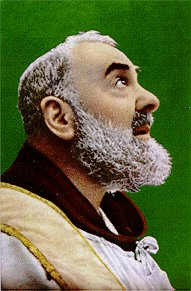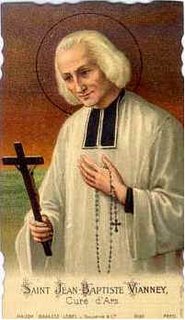My children, we are going to speak of hope: that is what makes the happiness of man on earth. Some people in this world hope too much, and others do not hope enough. Some say, "I am going to commit this sin again. It will not cost me more to confess four than three. " It is like a child saying to his father, "I am going to give you four blows; it will cost me no more than to give you one: I shall only have to ask your pardon. "
That is the way men behave towards the good God. They say, "This year I shall amuse myself again; I shall go to dances and to the alehouse, and next year I will be converted. The good God will be sure to receive me, when I choose to return to Him. He is not so cruel as the priests tell us. " No, the good God is not cruel, but He is just. Do you think He will adapt Himself in everything to your will? Do you think that He will embrace you, after you have despised Him all your life? Oh no, indeed! There is a certain measure of grace and of sin after which God withdraws Himself. What would you say of a father who should treat a good child, and one not so good the same. Would you not say that the father is not just. Well! God would not be just if He made no difference between those who serve Him and those who offend Him.
My children, there is so little faith now in the world that people either hope too much, or they despair. Some say, "I have done too much evil; the good God cannot pardon me:' My children, this is a great blasphemy; it is putting a limit to the mercy of God, which has no limit -- it is infinite. You may have done evil enough to lose the souls of a whole parish, and if you confess, if you are sorry for having done this evil, and resolve not to do it again, the good God will have pardoned you.
A priest was once preaching on hope, and on ; the mercy of the good God. He reassured others, but he himself despaired. After the sermon, a young man presented himself, saying, "Father, I am come to confess to you:' The priest answered, "I am willing to hear your confession:' The other recounted his sins, after which he added, "Father, I have done much evil; I am lost!" "What do you say, my friend! We must never despair:' The young man rose, saying, "Father, you wish me not to despair, and what do you do?" This was a ray of light; the priest, all astonishment, drove away that thought of despair, became a religious and a great saint. . . . The good God had sent him an angel under the form of a young man, to show him that we must never despair. The good God is as prompt to grant us pardon when we ask it of Him as a mother is to snatch her child out of the fire.
Read more on St. John Vianney
Read more >>
That is the way men behave towards the good God. They say, "This year I shall amuse myself again; I shall go to dances and to the alehouse, and next year I will be converted. The good God will be sure to receive me, when I choose to return to Him. He is not so cruel as the priests tell us. " No, the good God is not cruel, but He is just. Do you think He will adapt Himself in everything to your will? Do you think that He will embrace you, after you have despised Him all your life? Oh no, indeed! There is a certain measure of grace and of sin after which God withdraws Himself. What would you say of a father who should treat a good child, and one not so good the same. Would you not say that the father is not just. Well! God would not be just if He made no difference between those who serve Him and those who offend Him.
My children, there is so little faith now in the world that people either hope too much, or they despair. Some say, "I have done too much evil; the good God cannot pardon me:' My children, this is a great blasphemy; it is putting a limit to the mercy of God, which has no limit -- it is infinite. You may have done evil enough to lose the souls of a whole parish, and if you confess, if you are sorry for having done this evil, and resolve not to do it again, the good God will have pardoned you.
A priest was once preaching on hope, and on ; the mercy of the good God. He reassured others, but he himself despaired. After the sermon, a young man presented himself, saying, "Father, I am come to confess to you:' The priest answered, "I am willing to hear your confession:' The other recounted his sins, after which he added, "Father, I have done much evil; I am lost!" "What do you say, my friend! We must never despair:' The young man rose, saying, "Father, you wish me not to despair, and what do you do?" This was a ray of light; the priest, all astonishment, drove away that thought of despair, became a religious and a great saint. . . . The good God had sent him an angel under the form of a young man, to show him that we must never despair. The good God is as prompt to grant us pardon when we ask it of Him as a mother is to snatch her child out of the fire.
Read more on St. John Vianney














